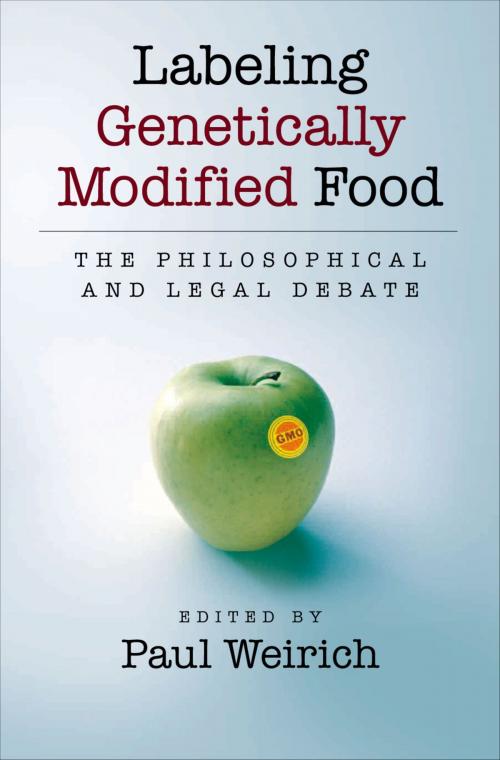Labeling Genetically Modified Food
The Philosophical and Legal Debate
Nonfiction, Reference & Language, Law, Environmental, Religion & Spirituality, Philosophy, Ethics & Moral Philosophy, Science & Nature, Science| Author: | ISBN: | 9780190296193 | |
| Publisher: | Oxford University Press | Publication: | November 1, 2007 |
| Imprint: | Oxford University Press | Language: | English |
| Author: | |
| ISBN: | 9780190296193 |
| Publisher: | Oxford University Press |
| Publication: | November 1, 2007 |
| Imprint: | Oxford University Press |
| Language: | English |
Food products with genetically modified (GM) ingredients are common, yet many consumers are unaware of this. When polled, consumers say that they want to know whether their food contains GM ingredients, just as many want to know whether their food is natural or organic. Informing consumers is a major motivation for labeling. But labeling need not be mandatory. Consumers who want GM-free products will pay a premium to support voluntary labeling. Why do consumers want to know about GM ingredients? GM foods are tested to ensure safety and have been on the market for more than a decade. Still, many consumers, including some with food allergies, want to be cautious. Also, GM crops may affect neighboring plants through pollen drift. Despite tests for environmental impact, some consumers may worry that GM crops will adversely effect the environment. The study of risk and its management raises questions not settled by the life sciences alone. This book surveys various labeling policies and the cases for them. It is the first comprehensive, interdisciplinary treatment of the debate about labeling genetically modified food. The contributors include philosophers, bioethicists, food and agricultural scientists, attorneys/legal scholars, and economists.
Food products with genetically modified (GM) ingredients are common, yet many consumers are unaware of this. When polled, consumers say that they want to know whether their food contains GM ingredients, just as many want to know whether their food is natural or organic. Informing consumers is a major motivation for labeling. But labeling need not be mandatory. Consumers who want GM-free products will pay a premium to support voluntary labeling. Why do consumers want to know about GM ingredients? GM foods are tested to ensure safety and have been on the market for more than a decade. Still, many consumers, including some with food allergies, want to be cautious. Also, GM crops may affect neighboring plants through pollen drift. Despite tests for environmental impact, some consumers may worry that GM crops will adversely effect the environment. The study of risk and its management raises questions not settled by the life sciences alone. This book surveys various labeling policies and the cases for them. It is the first comprehensive, interdisciplinary treatment of the debate about labeling genetically modified food. The contributors include philosophers, bioethicists, food and agricultural scientists, attorneys/legal scholars, and economists.















